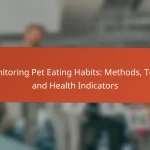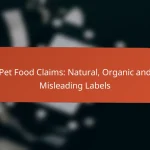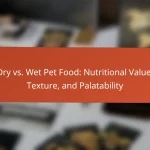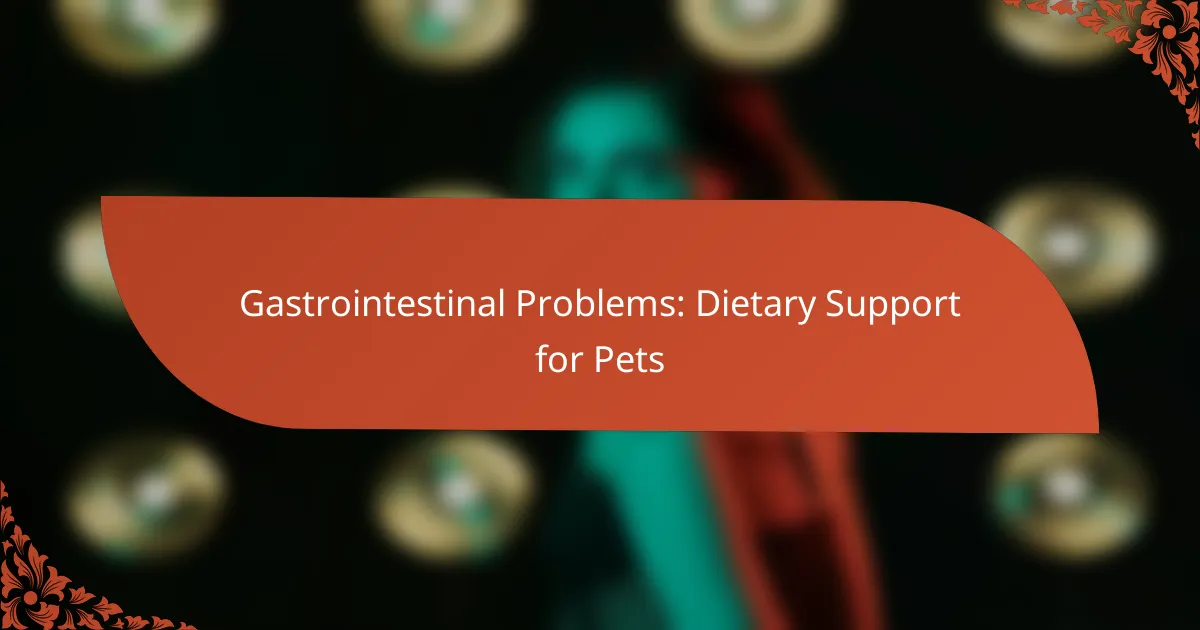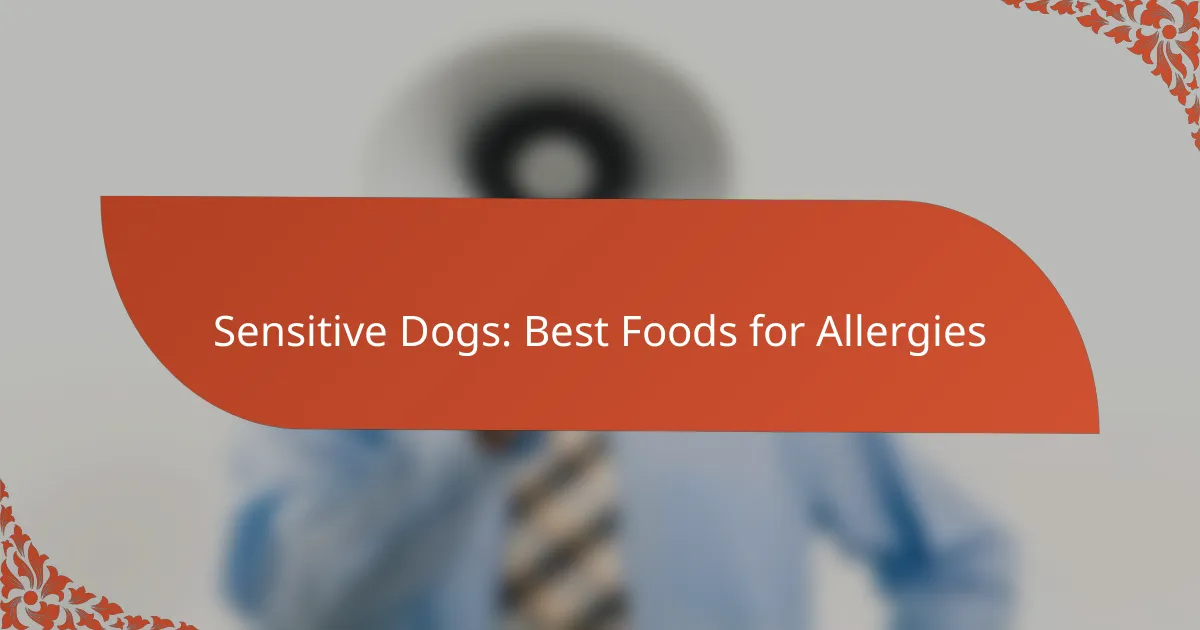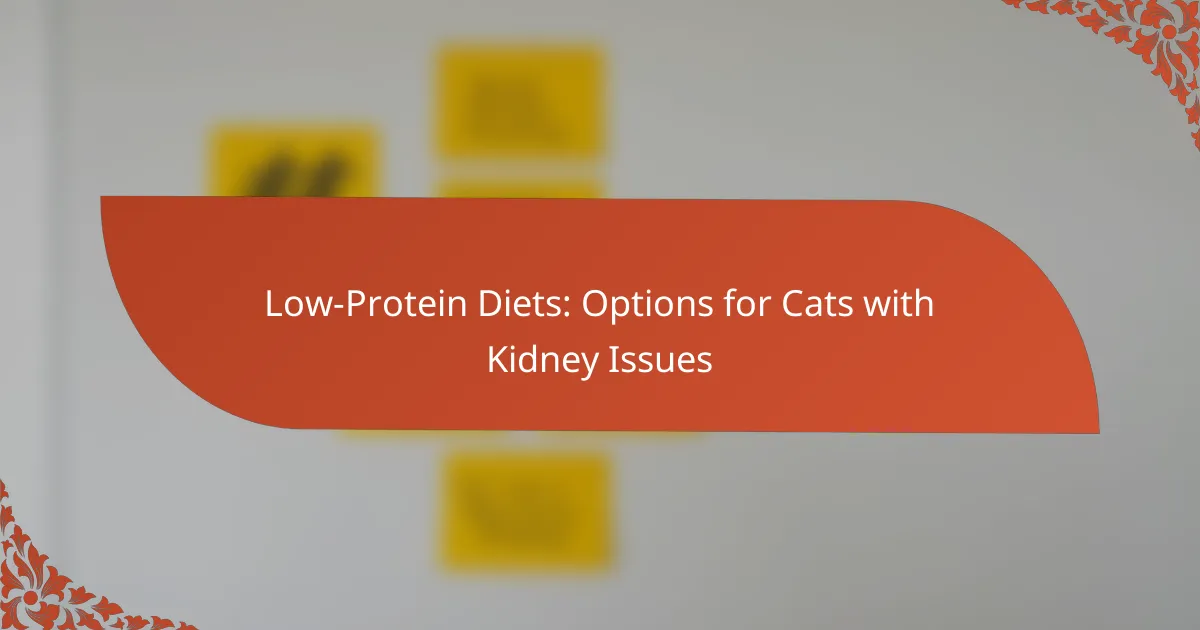Gastrointestinal problems in pets can lead to discomfort and serious health issues, making dietary support essential for their recovery. Solutions such as probiotics, specialized veterinary diets, and hydration support can effectively address conditions like diarrhea, constipation, and pancreatitis. Consulting with a veterinarian to tailor a diet to your pet’s specific needs is crucial for promoting their digestive health and overall well-being.
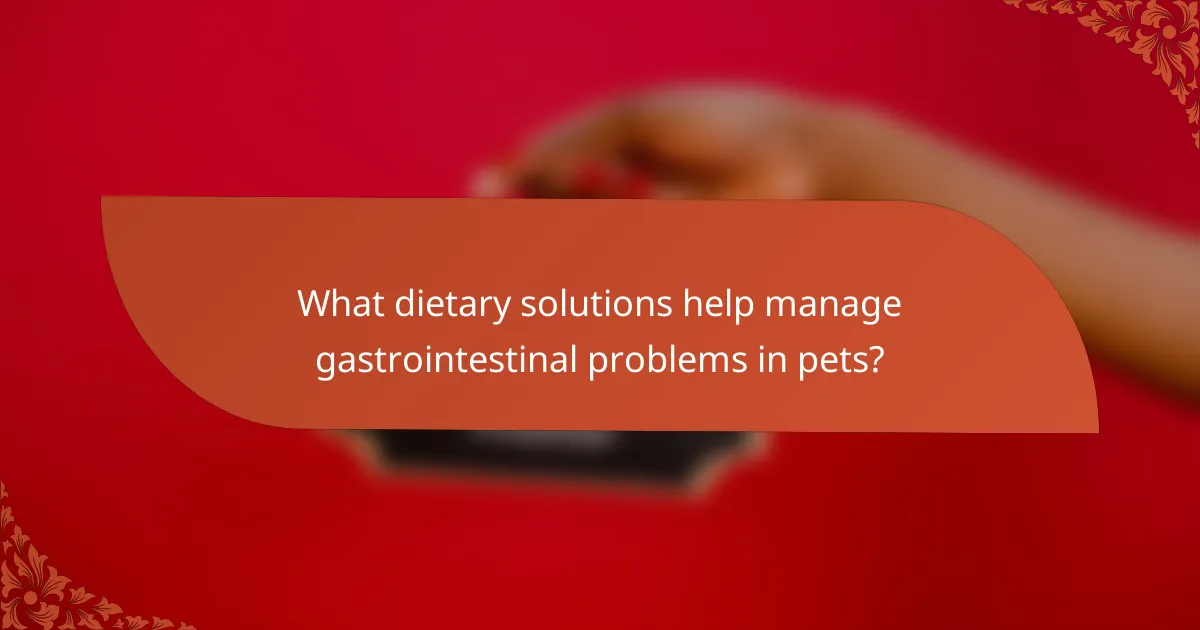
What dietary solutions help manage gastrointestinal problems in pets?
Dietary solutions for managing gastrointestinal problems in pets include probiotics, specialized veterinary diets, hydration support, high-fiber diets, and low-fat diets. Each solution targets specific issues like diarrhea, constipation, or pancreatitis, providing tailored support for your pet’s digestive health.
Probiotics for digestive health
Probiotics are beneficial bacteria that can enhance digestive health in pets by restoring the natural balance of gut flora. They are particularly useful during or after antibiotic treatments, which can disrupt normal digestion.
When selecting probiotics, look for products specifically formulated for pets, as human probiotics may not be effective. Dosage can vary, so consult your veterinarian for appropriate recommendations based on your pet’s size and health condition.
Specialized veterinary diets
Specialized veterinary diets are designed to address specific gastrointestinal issues, such as food sensitivities or inflammatory bowel disease. These diets often contain easily digestible ingredients and are low in allergens.
Consult your veterinarian to determine the best specialized diet for your pet. Brands may vary, but many offer prescription options that can significantly improve your pet’s digestive health.
Hydration support with electrolyte solutions
Hydration is crucial for pets experiencing gastrointestinal problems, especially if they are vomiting or have diarrhea. Electrolyte solutions can help replenish lost fluids and maintain proper hydration levels.
Look for pet-specific electrolyte solutions, which are formulated to meet their unique needs. Always follow your veterinarian’s guidance on how much to administer, as overhydration can also pose risks.
High-fiber diets for constipation
High-fiber diets can help alleviate constipation in pets by promoting regular bowel movements. Fiber adds bulk to the stool and can improve gut motility.
Incorporate fiber-rich foods like pumpkin or specialized high-fiber pet foods into your pet’s diet. Gradually increase fiber intake to avoid digestive upset, and consult your veterinarian for tailored advice based on your pet’s specific needs.
Low-fat diets for pancreatitis
Low-fat diets are essential for pets diagnosed with pancreatitis, as high-fat foods can exacerbate the condition. These diets help reduce the workload on the pancreas and promote healing.
Choose low-fat commercial diets specifically formulated for pets with pancreatitis, or consult your veterinarian for homemade diet options. Monitor your pet’s response to dietary changes and adjust as needed under veterinary supervision.

How can I choose the right diet for my pet’s gastrointestinal issues?
Choosing the right diet for your pet’s gastrointestinal issues involves understanding their specific condition and consulting with a veterinarian. A tailored diet can help alleviate symptoms and promote overall digestive health.
Consultation with a veterinarian
Consulting with a veterinarian is crucial when selecting a diet for pets with gastrointestinal problems. They can provide a proper diagnosis and recommend dietary adjustments based on your pet’s health needs.
Veterinarians may suggest prescription diets specifically formulated for digestive health, which can be more effective than standard pet food. Regular follow-ups can help monitor your pet’s progress and adjust the diet as needed.
Understanding pet’s specific condition
Different gastrointestinal issues require different dietary approaches. Conditions like inflammatory bowel disease, food allergies, or pancreatitis may necessitate unique dietary restrictions or ingredient choices.
For example, pets with food allergies may benefit from a limited ingredient diet, while those with pancreatitis may require low-fat options. Understanding the specific condition helps in selecting the most suitable food.
Evaluating ingredient quality
Ingredient quality is essential when choosing a diet for pets with gastrointestinal issues. Look for high-quality proteins, digestible carbohydrates, and beneficial fibers that support gut health.
Avoid foods with artificial additives, fillers, or low-quality ingredients, as these can exacerbate gastrointestinal problems. Reading labels and choosing brands with transparent ingredient sourcing can help ensure quality.
Considering pet’s age and breed
Age and breed can significantly influence dietary needs for pets with gastrointestinal issues. Puppies and kittens may require different nutrient profiles than adult or senior pets, while certain breeds may be predisposed to specific digestive problems.
For instance, small breed dogs may have different caloric needs compared to large breeds. Tailoring the diet to your pet’s age and breed can enhance digestive health and overall well-being.
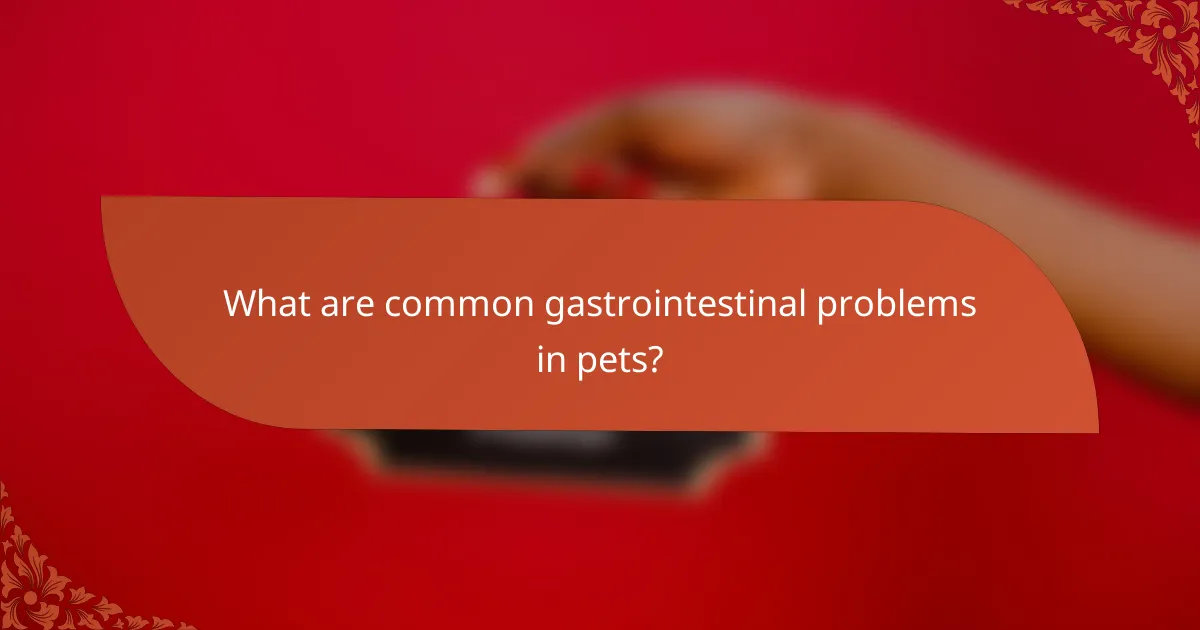
What are common gastrointestinal problems in pets?
Common gastrointestinal problems in pets include conditions like gastroenteritis, inflammatory bowel disease, pancreatitis, and food allergies. These issues can lead to symptoms such as vomiting, diarrhea, and discomfort, requiring dietary adjustments for effective management.
Gastroenteritis in dogs
Gastroenteritis in dogs is an inflammation of the stomach and intestines, often caused by infections, dietary indiscretion, or parasites. Symptoms typically include vomiting, diarrhea, and abdominal pain.
To support a dog with gastroenteritis, consider a bland diet consisting of boiled chicken and rice, gradually reintroducing regular food as symptoms improve. Always consult a veterinarian if symptoms persist for more than a day or two.
Inflammatory bowel disease in cats
Inflammatory bowel disease (IBD) in cats is a chronic condition characterized by inflammation of the gastrointestinal tract. This can lead to symptoms like vomiting, diarrhea, and weight loss.
Managing IBD often involves dietary changes, such as switching to a hypoallergenic or easily digestible diet. Regular veterinary check-ups are essential to monitor the condition and adjust the treatment plan as needed.
Pancreatitis in dogs
Pancreatitis in dogs is an inflammation of the pancreas, which can be triggered by high-fat diets, obesity, or certain medications. Symptoms may include vomiting, abdominal pain, and lethargy.
A low-fat diet is crucial for managing pancreatitis. Gradual reintroduction of food should be done under veterinary guidance, and pet owners should avoid giving table scraps to prevent flare-ups.
Food allergies in pets
Food allergies in pets occur when the immune system reacts negatively to specific ingredients in their diet, leading to gastrointestinal upset and skin issues. Common allergens include beef, dairy, and wheat.
Identifying food allergies often requires an elimination diet, where potential allergens are removed and then gradually reintroduced. Consulting with a veterinarian for proper testing and dietary recommendations is essential for effective management.

What role do supplements play in pet gastrointestinal health?
Supplements can significantly enhance gastrointestinal health in pets by providing essential nutrients that support digestion and reduce inflammation. They can help manage various digestive issues, ensuring pets absorb nutrients effectively and maintain overall well-being.
Digestive enzymes for nutrient absorption
Digestive enzymes aid in breaking down food components, making nutrients more accessible for absorption. Pets with gastrointestinal problems may benefit from enzyme supplements, especially if they have conditions that impair their natural enzyme production.
When selecting digestive enzyme supplements, look for those containing proteases, lipases, and amylases, which target proteins, fats, and carbohydrates respectively. Dosage can vary, but starting with a low dose and adjusting based on your pet’s response is advisable.
Omega-3 fatty acids for inflammation
Omega-3 fatty acids are known for their anti-inflammatory properties, which can be beneficial for pets suffering from gastrointestinal inflammation. These fatty acids help reduce symptoms associated with conditions like inflammatory bowel disease (IBD) and promote a healthier gut lining.
Common sources of omega-3s include fish oil and flaxseed oil. For pets, a daily dose of around 20-55 mg per kilogram of body weight is often recommended, but it’s best to consult with a veterinarian for specific guidance tailored to your pet’s needs.

How do I monitor my pet’s response to dietary changes?
To effectively monitor your pet’s response to dietary changes, observe their symptoms and behavior closely over a few days to weeks. This helps identify any positive or negative reactions to the new diet, allowing for timely adjustments.
Tracking symptoms and behavior
Start by keeping a daily log of your pet’s symptoms, such as vomiting, diarrhea, or changes in appetite. Note any behavioral changes, like increased lethargy or restlessness, as these can indicate how well they are adjusting to the new diet.
Consider using a simple checklist to track these symptoms. For example, rate their appetite on a scale from 1 to 5, with 1 being no interest in food and 5 being normal eating habits. This can help you spot trends over time.
Also, pay attention to the timing of any symptoms in relation to meals. If symptoms occur shortly after eating, it may indicate an intolerance or allergy to specific ingredients in the new diet.
